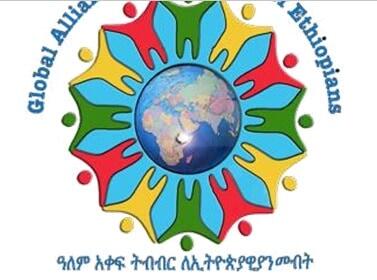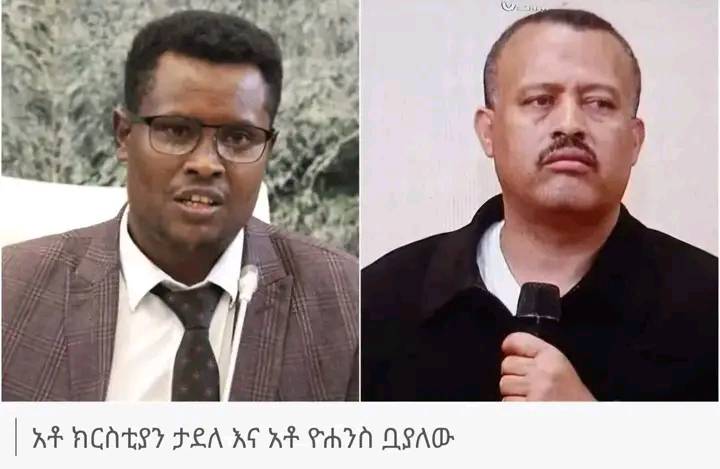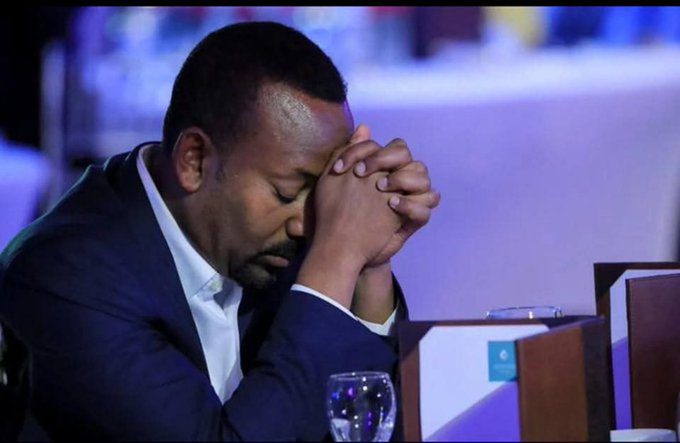By Dr. Suleiman Walhad
February 10, 2022

The Past
The Horn of Africa States was from time immemorial a trading partner of Egypt up and until Mohamed Ali Pasha, which coincides with the opening of the Suez Canal by the renowned French Diplomat, Ferdinand de Lesseps. Mohamed Ali Pasha, the Albanian working for the Ottoman Empire who ruled Egypt on their behalf, was over ambitious and wanted to conquer the region sending expeditions, which finally left the region in 1875 after a short stay in Zeila, Berbera and Harar and the coastal ports of Eritrea today, Assab and Mussawa.
Ever since this gentleman, the relationship between Egypt and the region was twisted and crooked, with Egypt always working to undermine the region because of perceived fear that the region may adversely affect the two most important assets of the country, namely the River Nile and the Suez Canal. It is one of the main reasons for which the region is messy and in wars because of Egypt’s desire and involvement thereon, to keep the region busy on itself and never look up to find where actually the troubles were coming from.
The Present
Egypt remains certainly disruptive force in the Horn of Africa region, although it had good relations with it for thousands of years from ancient times to about a century and a half ago, when the Egyptian approach to the region became obviously one of taking advantage of the region instead of being mutual as was always the case in periods before then.
The present Egyptians did not read the history very well, otherwise they would have noted the subtle message the King of Persia received from the Macrobians (ancient people of Horn of Africa) as Herodotus, the Ancient Greek historian reccounted, “the Persian Emperor Cambyses II upon his conquest of Egypt (525 BC), sent ambassadors to Macrobia, bringing luxury gifts for the Macrobian king to entice his submission. The Macrobian ruler, who was elected based at least in part on stature, replied instead with a challenge for his Persian counterpart in the form of an unstrung bow: “if the Persians could manage to string it, they would have the right to invade his country; but until then, they should thank the gods that the Macrobians never decided to invade their empire”” – (Google).
Egypt appears to be now self-centered and looks only after its perceived interests and what is driving this apparently wrong approach is its perceived calculations in terms of the only two assets, Egypt deems necessary for its survival – the Nile River and the Suez Canal.
In the past and before the European age of discovery, it is not clear if the Egyptians knew that most of the waters of the Nile came from the Horn of Africa. Despite this anomaly, however, Egyptians considered and still consider the Nile, as a Gift of God to Egypt only. This is not true. It is a gift to all the peoples and regions its passes through from source to sea.
Other than the Nile, Egypt also considers the Horn of Africa as vitally important for the Suez Canal, as all ships that pass through the Suez Canal and hence the sources of a large part of its annual income, must transit through the Red Sea and the Bab El Mandab. The Horn of Africa straddles the Red Sea and the straits and continues to dominate from the African side the shipping lanes that must continue through the Gulf of Aden and the northern part of the Indian ocean. Any disruption from this region will affect the flow of ships and trade in the Suez Canal.
Egypt’s policies, over the past century and a half, never went beyond the narrow vision that it should control the Horn of Africa, which is of vital importance to its perceived survival. It was, indeed, shortsightedness and selfish at best and never gave a second thought that the Horn of Africa States could have its own needs, goals and ambitions and the best way to ensure of Egypt’s survival was to align its needs with those of the Horn of Africa, let alone antagonize them. The best attitude of a man towards another is to treat him as a brother, so says a Somali proverb. One cannot assume that one is always better than another. This is an illusion and often temporary, although such an illusion could last longer than expected, in some crazier situations.
Every human group that rose above others in terms of “power” in the past passed away and were replaced by other groups, and no one shed a tear for that slipped away into the fogs of history, and that is why we do not see the Great Roman Empire or the Hellenistic Greeks who dominated the Mediterranean at one time or for that matter even the Great British Empire where the sun never set. Egypt was ancient Egypt itself and it was an empire that used to have its say in the world affairs of its time, but present Egypt has not learned anything from this.
Egypt on the contrary, used direct and indirect invasions of the region over the past century and a half and failed in all. Anglo-Egypt invaded the Horn of Africa about 130 years ago and was repulsed. And more recently, they used one part of the Horn of Africa against another – Ethio-Somali wars, Eritrean-Ethiopian conflicts, Ethio-Sudan crisis and so on.
Wouldn’t it be better for Egypt to work with the region and create a stable region that works with Egypt on a win-win contract basis? It would certainly not be advisable to create a hostile region. The Horn of Africa is vitally important for Egypt, and it is, in its best interest, not to have it on the other side of the fence. Egypt must realize that the region knows where its interests lie and would determine its destiny its own way as it always did throughout history.
What should the Horn of Africa States Do?
Egypt is eternally tied to the region because of the Nile and the Suez Canal, and the Horn of Africa must realize that it would need to know and constantly follow the policies of Egypt very closely for Egypt wrongly believes that it should disrupt the advancement of the Horn of Africa region, which it sees as a danger to its survival.
This is really not true. Like any other region in the world and like itself, Egypt, the Horn of Africa States, need also to survive and that it will do whatever it takes to do so. The Horn of Africa should make it known to its populations, of Egypt’s current disruptive role in the region, until it comes to its senses to live with the people of the region, in peace.
In the longer term, The Horn of Africa Policy towards Egypt should be not only to ward of its disruptive forces but also to influence it such that Egypt is reassured that its interests lie with peaceful and developing and united Horn of Africa, which act as one set instead of the current various sub-sets that can be used by non-regional forces, who may have other ambitions different from those of Egypt and the Horn of Africa States.
A collective proactive foreign policy of the Horn of Africa States towards all neighboring regions such as those of the Arabian/Persian Gulf countries, Egypt, and even African regions in the proximity of the Horn of Africa must be developed to ward off any malevolent intentions. This does not negate the fact that the Horn of Africa States needs to take care of its populations so that internal tensions, which can be exploited by those with malevolent intentions on the region, do not succeed.
A robust collective outreach to the international organizations and countries must be developed, which present the region in its true nature, a peaceful developing region that is not harmful to anyone, but which would share its resources with the rest of the world, such as the uninterrupted flow of the Nile waters, while serving its populations with energy, peaceful flow of shipping in its waterways of the Gulf of Aden, the Bab El Mandab and the Red Sea and exploitation of its other natural resources both sub and above soil.
The Horn of Africa region offers young and active populations that would contribute to the development of humanity, and one must note that, although in the past, the region presented itself as a disparate collection of states that were at each other’s throats, this is no longer the case, for the region is waking up to the realization that it is a common economic, security and political zone. Egypt needs to wake up to this assertive emerging region and must watch this new paradigm at play. The close relationship developing among Somalia, Ethiopia and Eritrea should attest to this.
The misguided policies of the Arabian Gulf countries in the Horn of Africa like sowing mistrust among Somali politicians and continuing the civil strife in Somalia, or the nefarious involvement of the Gulf and Egypt in Ethiopia’s civil war, would not serve Egypt’s interests well. It would be in the best interest of Egypt to create a win-win relationship with the region rather than to appealing to other hostiles, with diametrically opposing interests, in the region.
It would be best to swim together than to sink together.
















AP has very recently reported an official visit by the president of Djibouti H.E. Ismael Omar Guelleh to Egypt.
For me the news of this meeting begins and ends with this line in the news article:
‘Guelleh described the talks as “constructive and fruitful,” saying that they discussed ways to “reinforce and develop our bilateral relations on all levels.’
Other than that there is absolutely nothing to talk about the dam. The dam is also the people of Djibouti’s dam, figuratively, symbolically, metaphorically and literally. Do you want me to be elaborate on that? Let me have a quick pow wow with my Afar and Issa brothers and sisters.
Super Power wannabe el-Sisi should know better about Blue Nile since Egypt has lived with it since antiquities. Blue Nile’s behavior can be totally unpredictable. It can be short tempered bursting into violent rage without warning. If you try to do something stupid that ends up ruffling its feathers it may stop flowing in its current direction. It is one heck of irascible creature. You dig?